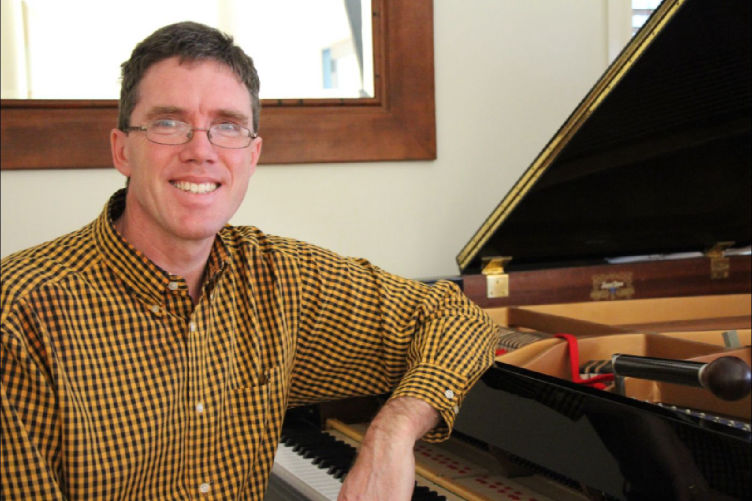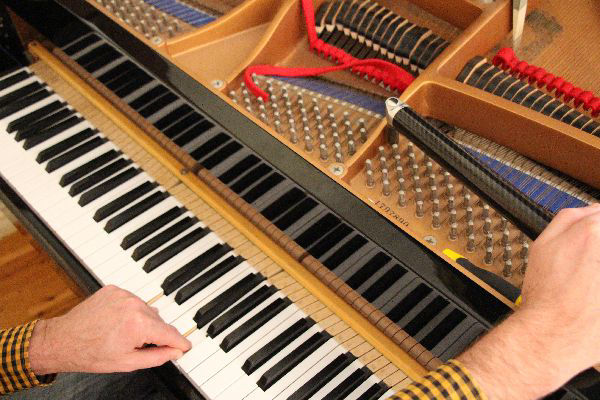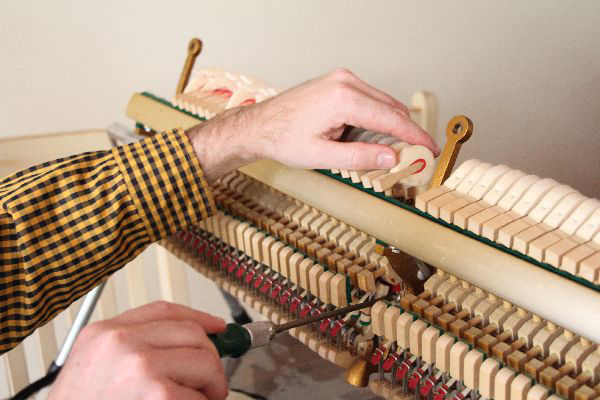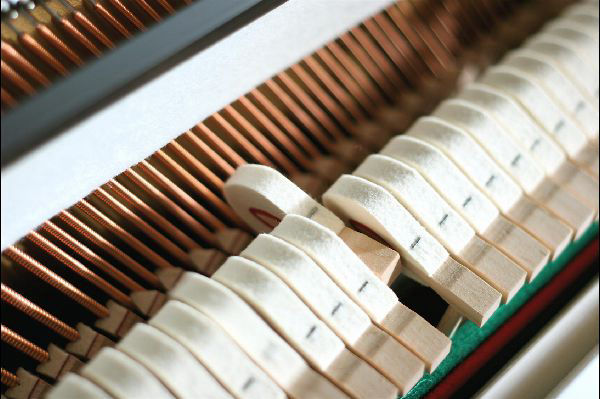It can be very tempting to look for a free or cheap piano, particularly when looking for an instrument for a young student to start out on or for a mature-aged person to recommence playing. However, there are some things to watch out for before committing to paying to move a piano into your home and then pay to have it tuned and discover that their are further costs to have it repaired or brought up to a playable level:
# Ask when the piano was last serviced - do they have any written evidence of this?
# Do all the notes work? Starting at the bottom note and looking inside the piano, play each note 4 times in succession - do the hammers return each time and do the notes sound equally loud?
# Do any of the notes sound really off? Listen particularly for clusters of notes or an individual note that stands out amongst other, cleaner sounding notes. It could be a sign of an overly loose pin or cracked pin-block.
# Are there any broken strings or missing hammers?
# Do any notes continue to sustain (hold for longer) after the note has been released?
If you're still not sure, Ian would (personally) suggest (for an upright) considering a Kawai, Yamaha or Steinbach no older than 40 years old. For a modest fee, Ian will inspect the piano and provide a report, testing the pins, all notes, pedals and making an assessment of the condition of the action, casework and tuning condition, as well as the costs associated with repairing them. Send Ian an enquiry to find out more.



